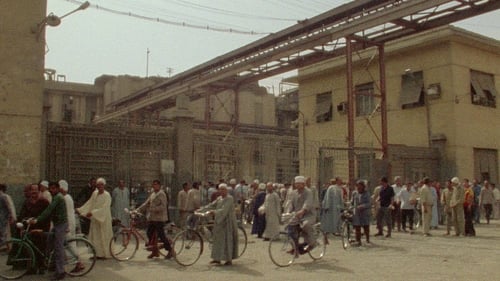
Director
Sarajevo was under siege already 9 months when Radovan Tadic flew there with a UNO machine to take pictures of misery and destruction in a city, in which dread is part of everyday life. He lets people talk about their desperate situation and repeatedly the dismay about the hatred between former neighbors. We see pictures of a wedding, interrupted by gun fire, an emergency operation on a soldier is interrupted by a woman's delivery, children disassemble a theater to get firewood. -- A dramatic appeal against carelessness and forgetting.

Writer
The oddest things come in pairs. In 1989, there were two foreign films on the market whose titles translated to Errors of Youth or Youthful Indiscretion. One was a Russian film, the other was a French picture, originally titled Erreur de Jeunesse. In this one, would-be poet Francis Frappat breezes through a number of relationships. Of paramount importance to Frappat are his attempts to seduce the lovely Géraldine Danon.

Director
The oddest things come in pairs. In 1989, there were two foreign films on the market whose titles translated to Errors of Youth or Youthful Indiscretion. One was a Russian film, the other was a French picture, originally titled Erreur de Jeunesse. In this one, would-be poet Francis Frappat breezes through a number of relationships. Of paramount importance to Frappat are his attempts to seduce the lovely Géraldine Danon.

Editor
A mother's visit to a psychoanalyst who does not belong to the human race. Issues of incest and racial intolerance.

Adaptation
A mother's visit to a psychoanalyst who does not belong to the human race. Issues of incest and racial intolerance.

Director
A mother's visit to a psychoanalyst who does not belong to the human race. Issues of incest and racial intolerance.

Assistant Director
Inspired by a letter by Friedrich Engels and a 1974 account of two militant Marxist writers who had been imprisoned by the Nasser regime, Straub-Huillet filmed this film in France and Egypt during 1980. They reflect on Egypt’s history of peasant struggle and liberation from Western colonization, and link it to class tensions in France shortly before the Revolution of 1789, quoting texts by Engels as well as the pioneering nonfiction film Workers Leaving the Lumière Factory (1895).






